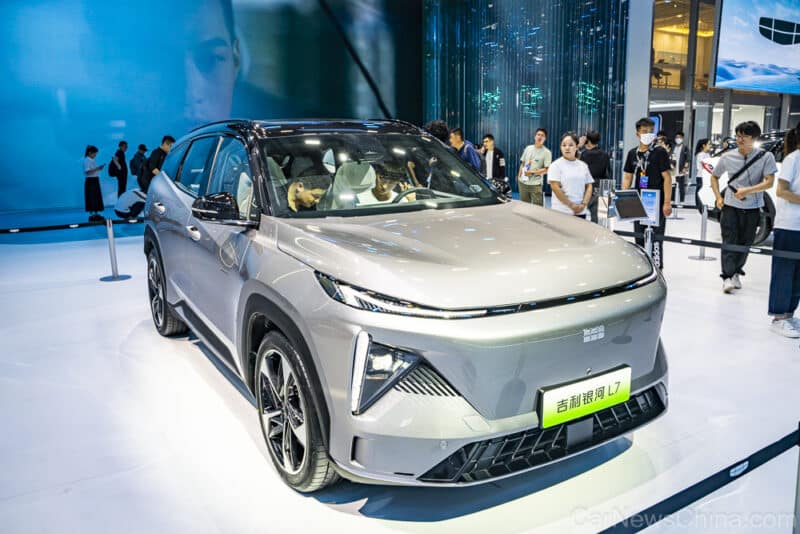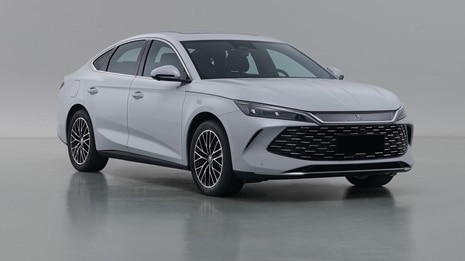Yesterday we reported that the BYD Qin L would be equipped with BYD’s fifth generation DM-i hybrid system. This system along with Geely’s next generation Thor system both claim that they can deliver up to 2000 kilometers of range when fully charged and with a full tank of fuel.
BYD Chairman Wang Chuanfu stated at the recently held 2023 financial report investor’s communication meeting that the BYD fifth generation DM-i technology would launch in May and would see fuel consumption reduce to 2.9 liters per 100 kilometers and that range would be 2000 km with full charge and fuel. DM stands for dual mode and is what BYD calls its PHEV technology, which first appeared in the F3-DM back in 2008.
The new BYD Qin L will be the first BYD car to come with the new generation system. However it should be noted that the best figure for fuel consumption of that car is 3.8 l/100km. It seems that the sub three liters level will be dependent on a smaller car than the relatively large Qin L, Fast Technology claim the smaller Qin Plus might be able to achieve it but that would seem unlikely given the limited difference in size.
Meanwhile, Geely insiders claim that the next generation Thor PHEV system will launch this year and that is has similar capabilities with a 2000 km range and fuel consumption of under 3 liters per 100 km.
Key to Geely’s Thor system hitting the sub 3 liter level will be a new engine which reportedly will become the most thermally efficient engine in production with an efficiency of 46%. For reference the current Thor system as fitted to cars like the Geely Galaxy L6 have a 1.5T Thor electric hybrid 8848 system in which the thermal efficiency of the petrol engine is 44.26%. Fitted to the Galaxy L6 it achieves 4.55 l/100km giving a maximum combined range of 1370 km using China’s CLTC testing system.

The new Thor PHEV system may debut later this year on a new Geely Galaxy model. It is known that 3 new models will launch this year including the compact E5 all electric SUV, a mid-size all electric SUV, and a mid-size PHEV SUV. It is expected that the latter will be called the Galaxy L5 and will be powered by the new Thor system. Price is likely to be below 200,000 yuan (27,650 USD).
Editor’s note:
Figures of 2000 km range are great for grabbing headlines but so far it doesn’t look like BYD or Geely are about to release a car that can achieve this under the CLTC system. Even if they did, the real world range would be considerably lower given that the CLTC testing system is weighted towards slower urban driving. Presumably achieving the figure would need a careful balancing act between a high energy density battery, low aerodynamics and a small sedan. We will keep you posted if either BYD or Geely actually launch such a car.
Sources: Fast Technology, Fast Technology



